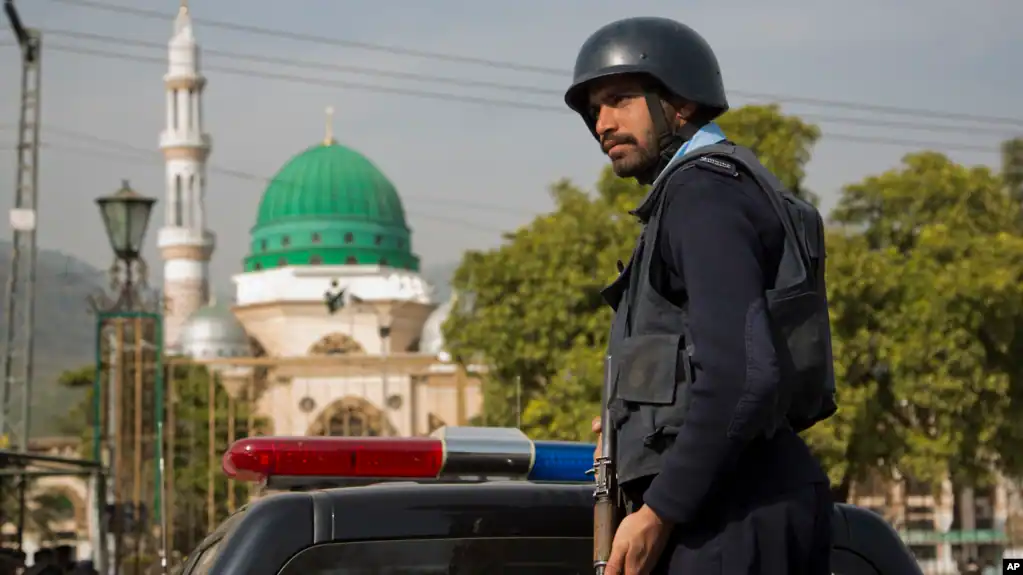In the last two decades, Pakistan has faced multiple phases of intense violence by groups affiliated with The Tehreek-e-Taliban Pakistan. After 2021, emboldened by the Taliban’s consolidation of power in Afghanistan, TTP unleashed a wave of violence that starkly challenged the state’s authority. In 2024 alone, Pakistan witnessed 785 terrorist attacks, resulting in 1,950 deaths. The provinces of Khyber Pakhtunkhwa and Balochistan became the epicenters of this violence, with terrorist incidents surging by 69% and 84% respectively compared to the previous year. Operating from sanctuaries in Afghanistan, often equipped with abandoned NATO weaponry, TTP have intensified their cross-border campaign against Pakistani security forces and civilians, marking a new, brutal phase in a long-running conflict.
This violent resurgence is not random, it is driven by a clear and unwavering ideological objective. The TTP frames its war as a divinely mandated jihad to overthrow the Pakistani government, which it deems un-Islamic, and to implement its own strict interpretation of Islam.
This narrative, which aims to establish an Islamic emirate in Pakistan, is the ideological bedrock of the movement’s campaign of suicide bombings and targeted assassinations. However, recognizing the limits of a purely religious appeal, the TTP has strategically rebranded its struggle. Its sophisticated propaganda apparatus now layers its religious goals with potent narratives of Pashtun nationalism, portraying itself as the defender of tribal honor and a guardian against alleged state atrocities and military oppression. This pivot from a solely religious vanguard to a tribal-religious guardian is a pragmatic move to cultivate broader societal legitimacy and exploit ethnic grievances, particularly in the Pashtun-majority regions bordering Afghanistan.
In response, the Pakistani state has engaged in both kinetic and ideological warfare. Alongside its new counter-insurgency operation, Azm-e-Istekeham, the government has sought to strip the TTP of its religious credentials. In 2024, Pakistan’s Ministry of Interior formally directed that the TTP be referred to as “Fitna al-Khawarij”. The Khawarij were an early sect in Islamic history infamous for their extreme puritanism, their rebellion against the legitimate authority of the Caliph, and their practice of declaring other Muslims as apostates.
By labeling the TTP as modern-day Khawarij, the state reframes the conflict from a political one, pitting an Islamic movement against a secular state, to a theological one, where the state is defending legitimatist Islam against a deviant, heretical fringe. This strategy aims to seize the religious high ground and isolate the TTP from the mainstream faith body.
This ideological battleground poses a critical question that extends far beyond the TTP and the state. The TTP’s war for Sharia creates a crisis of legitimacy for all of Pakistan’s major Islamic movements that also advocate for a central role for Islam in public life.
If the TTP’s path of armed rebellion is illegitimate, what are the legitimate alternatives?
The Deobandis
The TTP’s explicit identification as a Deobandi group creates an ideological challenge for the mainstream Deobandi movement, from which it claims lineage. The Deobandi school of thought, which originated in colonial India in 1866, has a complex history with armed struggle. Its founders were veterans of the 1857 Indian Rebellion against British rule, and later leaders like Mahmud Hasan Deobandi actively organized armed resistance against the colonial power. This historical legacy of anti-colonial jihad provides a precedent for militancy that the TTP seeks to exploit.
However, the mainstream Deobandi scholars in Pakistan has decisively and authoritatively rejected the TTP’s war against the Pakistani state. This rejection is rooted in a crucial theological distinction between a legitimate jihad against a foreign, non-Muslim occupier and a forbidden armed rebellion (baghawat or khuruj) against an established Muslim state, however flawed it may be.
In January 2023, amid a surge in TTP violence, the renowned Pakistani scholar Mufti Taqi Usmani issued a fatwa, which was unanimously adopted by clerics from all schools of thought. He declared that:
“Any armed activity against the state of Pakistan is a rebellion and haram according to Islamic law”.
He explicitly named the TTP, stating they are rebels and that their fight has nothing to do with Jihad.
This stance is institutionalized in the political arena by the Jamiat Ulema-e-Islam (JUI-F), Pakistan’s largest Deobandi political party. Its leader, Maulana Fazal-ur-Rehman, has consistently affirmed that his party opposes the armed struggle to achieve goals and instead seeks a peaceful democratic way to find solutions to problems within the framework of the 1973 Constitution. It is important to note that the 1973 Constitution of Pakistan was ratified by all major religio-political parties of that time, including JUI-F.
This strong opposition is an act of ideological self-preservation. The TTP’s violence, carried out under the Deobandi banner, threatens to tarnish the reputation of the entire movement, which encompasses a vast network of peaceful seminaries, social organizations, and political parties. By issuing clear and authoritative fatwas, senior figures like Mufti Taqi Usmani are drawing a sharp, unambiguous line between mainstream Islam and its violent, rebellious fringe.
The Barelvis
TThe Barelvi movement, representing a majority of Pakistan’s Sunni population, stands as a primary theological and political counterweight to this militancy. Formed in the late 19th century as a defense of traditional and Sufi-oriented Islamic practices. TTP-affiliated groups have repeatedly attacked Barelvi figures and destroyed Sufi shrines, which are central to Barelvi religious life. Examples include the 2010 attack on Data Darbar Lahore, the 2017 attack on Lal Shahbaz Qalandar, and the 2009 suicide attack in Jamia Naeemia to kill Maulana Sarfaraz Naeemi, who was a strong critic of suicide attacks by the TTP. Maulana Sarfaraz was constantly threatened by the TTP for taking a frontline position against terrorism by organizing seminars, intellectual discussions, and statements debunking the TTP’s stance. For the Barelvi community, the TTP is not just a political threat but a direct assault on their faith and heritage.
This profound opposition is most comprehensively articulated in the 600-page Fatwa authored by Dr. Muhammad Tahir-ul-Qadri. This ruling is arguably the most extensive Islamic legal refutation of modern terrorism. It goes beyond simply declaring such acts haram. Qadri argues that terrorism and suicide bombings are acts of kufr (disbelief), effectively expelling their perpetrators from the fold of Islam.
Barelvi politico-religious forums have historically taken a firm stance against the TTP and its terrorism. In 2013, over 100 Barelvi scholars demanded a stern military operation against the TTP by the government. The Jamiat Ulema-e-Pakistan (JUP) and other Barelvi political groups advocate for participating in the electoral process to implement Nizam-e-Mustafa (the system of the Prophet) through parliamentary and legal means, in contrast to the TTP’s violeny approach and ideology.
The Ahl e Hadith
The Ahl e Hadith movement holds the most doctrinally rigid position against armed rebellion. Their stance is grounded in a literalist interpretation of specific ahadiths that command absolute obedience to an established Muslim ruler, even if he is sinful or oppressive. This principle is not a matter of political pragmatism but of theological certainty. The core doctrine is that khuruj against a leader is strictly forbidden in all but the most extreme circumstances of manifest disbelief.
The primary justification for this position is the imperative to prevent fitnah—a term encompassing chaos, sedition, and civil war. Ahl e Hadith scholars argue that the evil of a tyrannical ruler is a lesser harm than the catastrophic evil of anarchy and bloodshed that rebellion would inevitably unleash. This view is articulated by classical scholars highly revered in the Ahl e Hadith tradition, such as Ibn Taymiyyah, who observed that rebelling against an authorized leader usually causes more harm than good.
In Pakistan, Ahl-e-Hadith groups have historically maintained that violence against the state in the name of Islam is not permissible. Dialogue with the TTP should only be carried out if it renounces violence and accepts the Constitution of Pakistan.
Crucially, the Ahl e Hadith school explicitly identifies those who engage in armed rebellion against a Muslim ruler with the historical sect of the Khawarij. This is the same delegitimizing label employed by the Pakistani state against the TTP. From the Ahl e Hadith perspective, the TTP’s actions, rebelling against the state and declaring its leaders and soldiers to be legitimate targets, are the defining characteristics of this deviant sect. This theological alignment places the TTP and similar groups firmly outside the bounds of orthodox Sunni Islam.
Institutionalized Religious Consensus
The last two decades of terrorism in Pakistan have compelled a profound phase of clarity and self-reflection among the country’s diverse Islamic currents. What has gradually taken shape is an overwhelming consensus that rejects and condemns the TTP’s campaign of armed rebellion, deeming it both theologically illegitimate and politically catastrophic. This rejection is not confined to one sect or school of thought; rather, it spans the full spectrum of Pakistan’s Islamic traditions. The consensus was formally institutionalized in 2018 through a landmark joint fatwa signed by nearly 1,800 scholars representing multiple sects and jurisprudential schools, unequivocally declaring terrorism and violent rebellion against the state to be un-Islamic.
This unity has forged a powerful and multi-front ideological bulwark, one that systematically denies extremist groups like the TTP the mainstream religious legitimacy they desperately crave. By stripping the TTP of any credible theological foundation, Pakistan’s ulema have effectively pushed the group into isolation, branding it as a heretical and deviant fringe movement rather than a legitimate expression of Islamic resistance. In doing so, the religious establishment has not only delegitimized the TTP’s narrative but also provided a broader societal shield against its attempts at recruitment and justification. The result is that the TTP now finds itself estranged from the very religious traditions and communities it claims to represent, further narrowing its space within Pakistan’s religious and political landscape.






![Ukrainian and Russian flags with soldier silhouettes representing ongoing conflict. [Image via Atlantic Council].](https://southasiatimes.org/wp-content/uploads/2026/02/2022-02-09T000000Z_1319661209_MT1NURPHO000HXCNME_RTRMADP_3_UKRAINE-CONFLICT-STOCK-PICTURES-scaled-e1661353077377.jpg)
